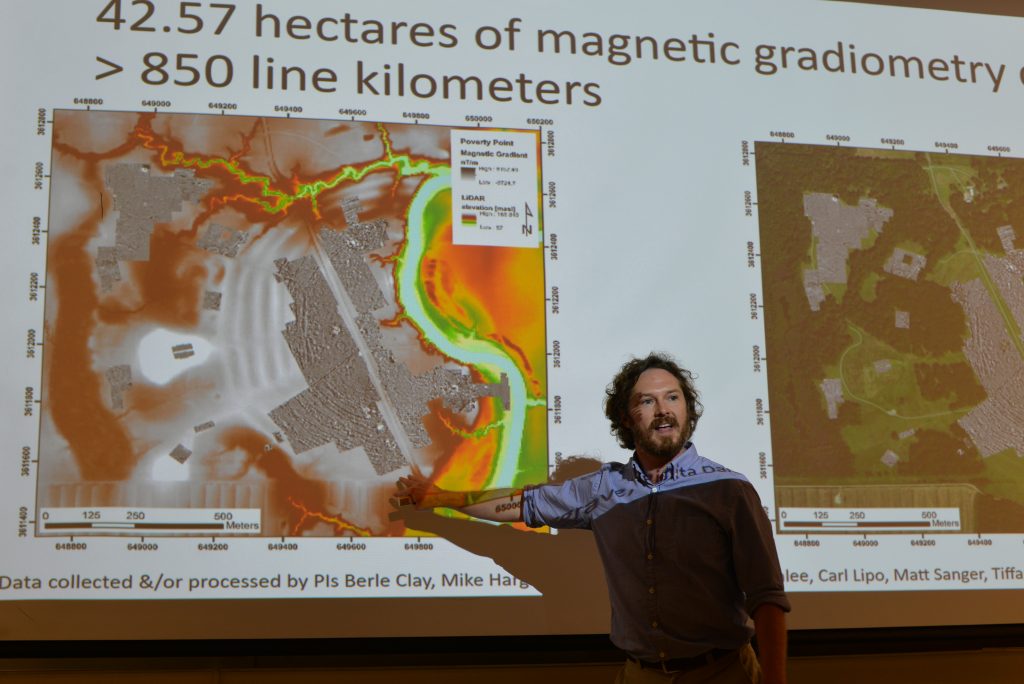After climate strikes took place worldwide on Friday, two Binghamton University professors gave talks about environmental stability for TEDxBinghamtonUniversity Salon on Monday.
The two presentations were part of a smaller version of the annual TEDx talks the University hosts, and carried over a theme of optimism in the rapidly changing climate. Robert Holahan, an associate professor of environmental studies and political science, was one of the speakers for the event. In his talk, “The Social Nature of Environmental Dilemmas,” Holahan discussed his research on human behavior and its effect on the environment.
“Sometimes, the solutions to complex environmental problems are really simple and are really focused on behavior, not environmental conditions,” Holahan said. “There is a chance for young people to put out the policies we need.”
A theme Holahan played on was dismantling the “tragedy of the commons,” a situation where overpopulation creates a depletion of resources, made popular by philosopher Garrett Hardin in 1968. While Hardin described the phenomena as a problem mankind brings upon itself, Holahan spun it as a problem young people can fix with better rules and communication.
“If you define a problem as a tragedy, it means it is inescapable,” Holahan said. “If you define a problem as governable, it means that there are some issues out there and we need to look for them and fix them.”
The other speaker, Timothy de Smet, a research assistant professor of anthropology, spoke on the protection of archaeological sites in his talk, “Remote Sensing for Preservation Archaeology.”
“Most people don’t think about archaeological sites as nonrenewable resources,” de Smet said. “They are, and need protection, especially coastal site[s] as the sea level rises. We need to conduct as many nondestructive, noninvasive surveys as we can also assess risk.”
One part of de Smet’s talk discussed his research on Easter Island, which is often used as an example of an island that humans exploited and depleted resources from. Through a series of tests, de Smet and his team discovered that inhabitants of the island broke and moved rocks to make the volcanic land habitable. This extra land was then used to create sustained agriculture in a place that lacked a natural ecosystem.
“Humans are great at adaptation,” de Smet said. “Sure, some amazing cities will be underwater in a hundred years, but life is water, not rock. Change is inevitable, we can whine about it and be angry, or we can embrace all the possibilities and build a better future. We all make choices every day and the world is the sum of those choices. From a deeply historic, geological history perspective of billions of years, the earth has been both much warmer and cooler than it is now and it is still supporting life. Life will go on.”
Lorin Miller, co-director for TEDxBinghamtonUniversity and a sophomore double-majoring in English and Italian, said the theme of environmental stability was chosen because of its prevalence in media and public consciousness, but was not planned around the worldwide climate strikes.
“The goal of a TEDx event is to leave the audience with something to think about,” Miller said. “The talks should reach beyond the event itself to ignite new ideas. We did not originally plan for the event to coincide with the climate strike. That was a happy accident.”
Holahan said he enjoyed the synergy between both talks, although he did not discuss his lecture with de Smet beforehand.
“We had no idea what each other would talk about, but we both ended up mentioning the population bomb and both had an overall optimistic message that the world isn’t doomed because humans are creative,” Holahan said.
Miller said the optimism of the event gave hope for the future, especially for students who will grow up with the realities of climate change.
“There is no doubt that what we are facing is truly a climate crisis, but it does no good to wallow in self-pity,” Miller said. “I think that having an optimistic and determined outlook will go further than a pessimistic and resigned one. Solutions are out there, and our generation is the one that has to find them. The greatest thing we can do is educate ourselves and spread that knowledge to others.”
David Godovich, a sophomore majoring in biomedical engineering, attended the event and said he appreciated that de Smet encouraged more students to join science, technology, engineering and mathematics (STEM) fields.
“What de Smet said about needing to energize and excite STEM undergraduates through research was very relevant,” Godovich said. “As an undergraduate course assistant for freshman engineering, it made me think about what I personally should do to engage my students.”



